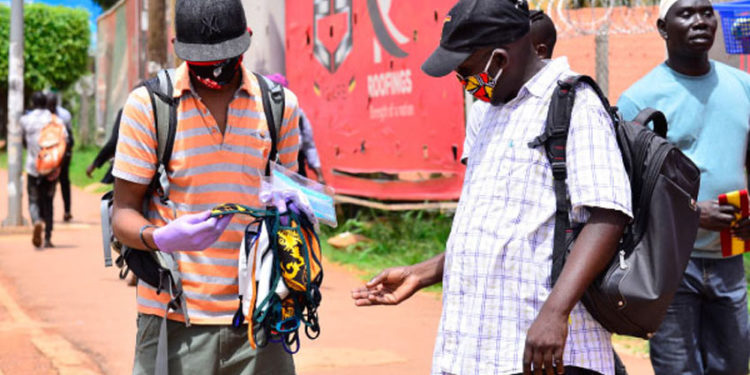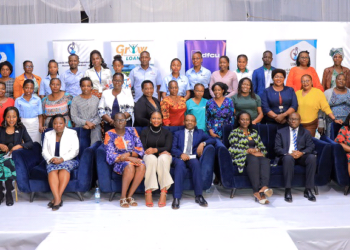Ministry of Health has cautioned that although cloth face masks have an advantage in that they can be washed overnight, ironed and reused the next day, they are not good for health workers.
The Minister of State for Primary Health Care Joyce Moriku Kaducu made this revelation on Wednesday while presenting the statement on Masks in the Parliament. She said that if a double cloth face mask is used with a filter inside (say a piece of tissue), it increases its protection to over 95 per cent, nevertheless, she noted that these are favourable to only the public.
“However, health workers should continue to use medical masks and disposable gloves in routine clinics while those in Covid-l9 isolation centres and those working in laboratories or taking samples should use N95 Masks,” she said.
She added that they are 2 types of masks used in the healthcare setting: medical masks and filtering respirator masks. Because they are made of unwoven fabric (commonly polypropylene). Also, they are designed to filter out about 95 per cent of aerosols (particles of less than or equal to 5 microns in size).
Kaducu said Ugandans should embrace wearing masks because it’s one of the most recommendable preventions against Covid-19. “The rationale for community use of masks is to prevent infected people from dispersing the virus as they cough, sneeze, talk or breathe. It is currently thought that virus shedding peaks at about 2 days before a person develops symptoms. As such, people without symptoms or just developing symptoms could infect many people before we know they are infected. With the current pandemic, everyone is potentially infectious,” she said.
On the issue of government awarding contracts to the local manufacturers to produce masks other than foreign companies, Kaducu said that government is to follow the formal procedure to award the contract to all manufacturing companies that have the capacity to produce the required face masks according to the laws of this country.
“Available capacity assured by Uganda Manufacturing Association (UMA) members engaged in textile is 800,000 per day. There is also a proposal to mobilise other small scale producers under KCCA and other Local Governments,” she added.
Do you have a story in your community or an opinion to share with us: Email us at editorial@watchdoguganda.com












